Bangladesh on the Brink: Unraveling Democracy Amidst Military Rule and Rising Extremism
The political landscape in Bangladesh has been dramatically altered following the ousting of Prime Minister Sheikh Hasina, who resigned and fled the country amid escalating protests and violence. This upheaval marks a significant moment in the nation’s political history, raising concerns about governance, democracy, and the safety of minority communities.
Context of the Ouster
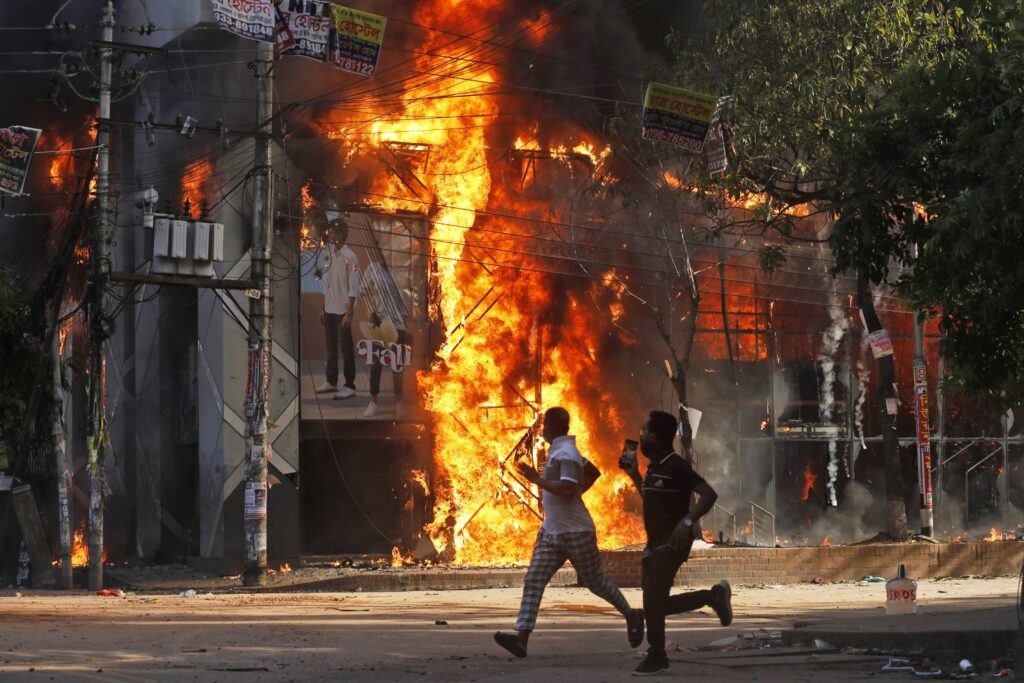
Sheikh Hasina’s removal from power was precipitated by widespread protests in June 2024, initially sparked by student demands to abolish a controversial quota system for government jobs. The protests quickly escalated into a broader movement against her administration, fueled by public dissatisfaction with economic hardships and allegations of authoritarianism. The situation reached a boiling point on August 4, 2024, when violent clashes between protesters and law enforcement resulted in at least 98 fatalities, prompting the military to impose a curfew and declare an indefinite state of emergency. Amid this turmoil, Hasina resigned and fled to India via military helicopter, marking the end of her 15-year tenure.
In the aftermath, Army General Waker-Uz-Zaman announced that a temporary military-backed government would take charge, signalling a significant shift in governance. This development raises questions about the future political direction of Bangladesh, as the military has historically played a powerful role in the country’s politics.
Current Situation
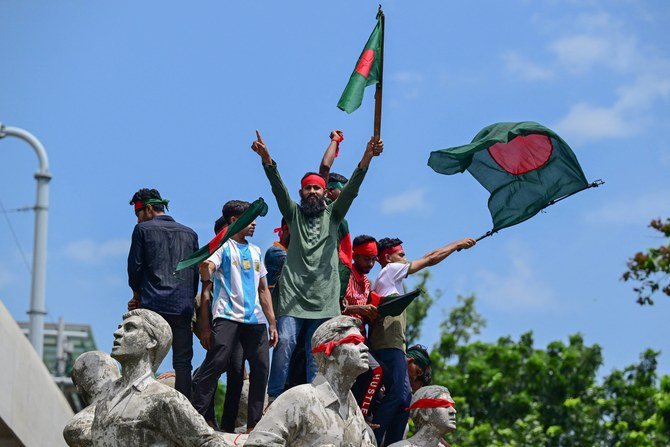
The current situation in Bangladesh is characterized by ongoing protests and violence. Demonstrators continue to clash with security forces, with reports indicating over 300 deaths since the protests began. The military’s curfew and suspension of mobile internet services have only intensified tensions, as citizens grapple with the implications of a military-led interim government. The unrest has led to significant disruptions in daily life, with schools closed and public services severely impacted. Moreover, the opposition parties, including the Bangladesh Nationalist Party (BNP), are calling for accountability and a return to democratic governance.
Concerns about Democracy and Extremism
The implications of Hasina’s ouster for democracy in Bangladesh are profound. The military’s assumption of control raises fears of a return to authoritarian rule, undermining the democratic progress made in recent years. Additionally, there are concerns about the potential rise of Islamic jihadist groups, which could exploit the political instability to gain influence. The historical context of political Islam in Bangladesh, coupled with the military’s uncertain stance, creates a precarious environment for the country’s secular democracy.
Impact on Hindu Minority
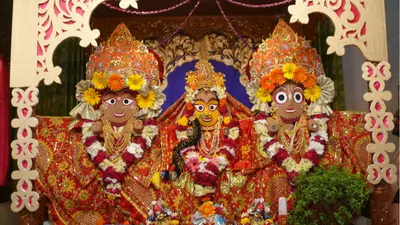
The Hindu minority in Bangladesh faces heightened concerns in the wake of the political upheaval. Historically, Hindus have been a reliable voting bloc for the Awami League, but their safety is now at risk amid rising tensions. Reports of violence and discrimination against Hindus have surfaced, echoing past incidents of persecution. The current political climate raises fears of retribution against minority communities, particularly if extremist groups gain traction during this period of instability.
Historical Context
The challenges faced by the Hindu minority in Bangladesh are not new. Throughout the country’s history, Hindus have experienced violence and persecution, particularly during periods of political unrest. Incidents such as the 2001 riots and the 2013 anti-Hindu violence highlight the vulnerabilities of this community. The current situation, with the military in control and extremist sentiments potentially on the rise, poses significant risks for Hindus and other minority groups in Bangladesh.
International Reactions
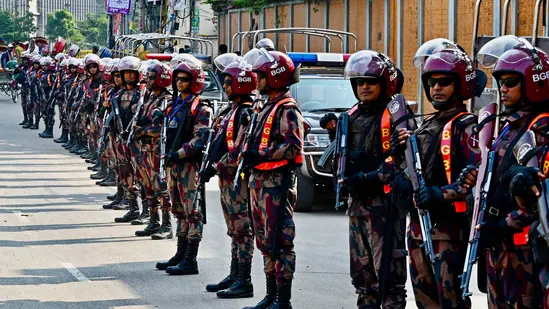
International reactions to the political crisis in Bangladesh have been varied. The United Nations and European Union have called for a peaceful transition to a democratically elected government, emphasizing the importance of human rights and accountability for recent violence. Meanwhile, neighbouring India has heightened security along its border with Bangladesh, reflecting concerns over the potential spillover effects of the unrest. The global community is closely monitoring the situation, urging restraint and dialogue among all parties involved.
Future Outlook
The future of Bangladesh remains uncertain as the country navigates this political upheaval. Potential scenarios range from a successful transition to a civilian government, fostering democratic reforms, to further instability and the entrenchment of military rule. The rise of extremist factions poses additional risks, potentially leading to increased violence against political opponents and minority communities. As the situation unfolds, the international community will likely play a crucial role in shaping the outcome, advocating for democratic principles and the protection of human rights.
In summary, the ouster of Sheikh Hasina has plunged Bangladesh into a period of uncertainty, with significant implications for governance, democracy, and the safety of minority communities. The coming weeks will be critical in determining the nation’s trajectory as it grapples with the consequences of this political upheaval.
More Interesting Articles
Supreme Court Backs L-G’s Authority: Major Shift in Delhi’s Political Dynamics
Sensex Today: Market Meltdown as BSE Sensex Dives Over 1,800 Points
Violence Erupts Across Bangladesh, Resulting in 32 Deaths and Nationwide Unrest
Fortifying Abraham Alliance: Israel’s Strategic Response to Iranian Threats in the New Middle East
Preeti Sudan: From Esteemed Bureaucrat to Visionary Steward at the Helm of India’s UPSC
Mamata Banerjee Joins PM at Pivotal Niti Aayog Meeting Amid Opposition Boycott
Union Budget 2024: Nirmala Sitharaman Unveils Bold Vision for India’s Future
PM Modi Urges Urgent Unity and Constructive Debate Ahead of Crucial Budget Session
Bangladesh’s Shoot-on-Sight Order Amid Mounting Student Protests: A Deepening Crisis
Aishwarya Rai Bachchan and Abhishek Bachchan: Addressing Rumors of Rift and Separation
Hardik Pandya Divorce: Cricketer and Natasa Stankovic Announce Split After Four Years of Marriage
Tragic Loss: Travel Influencer Aanvi Kamdar Falls to Her Death in Gorge Accident
Discover more from
Subscribe to get the latest posts sent to your email.

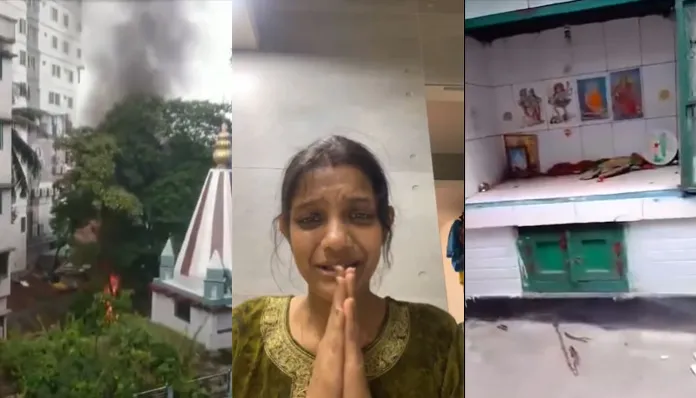

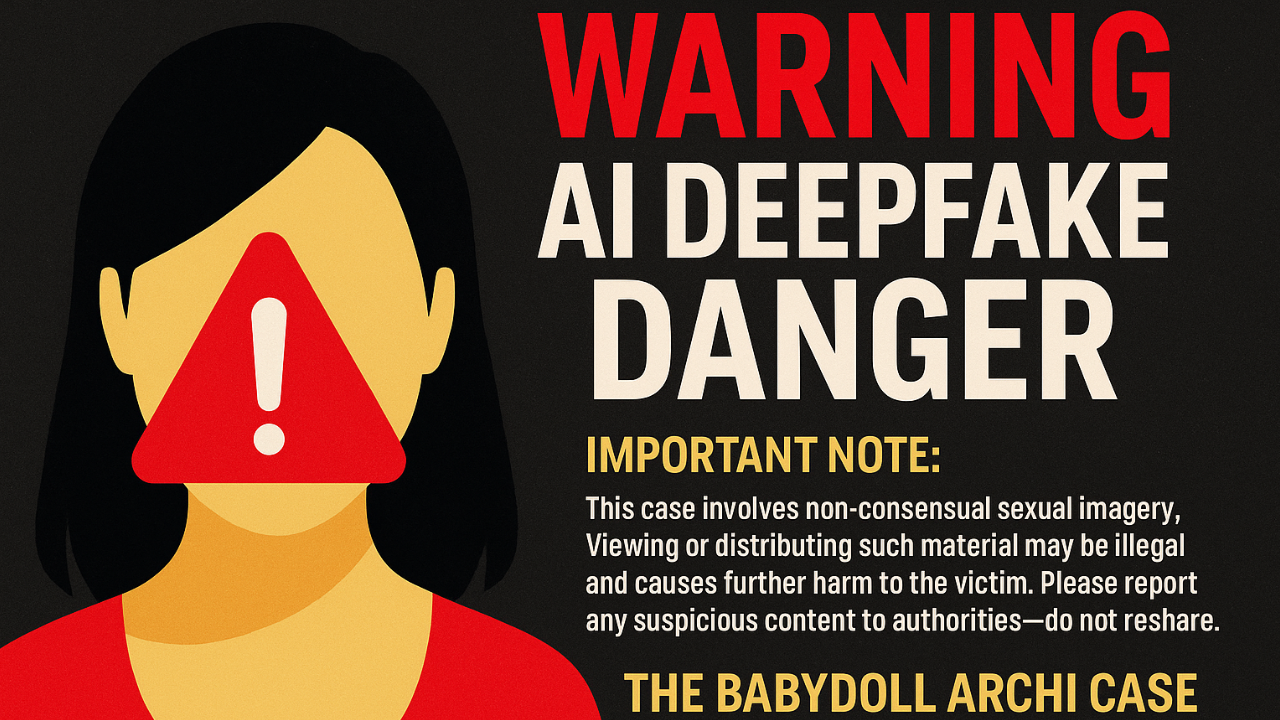







1 COMMENTS